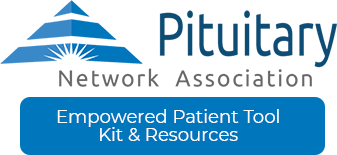 Kaisorn Chaichana, MD, FACS, FAANS, is a board-certified neurosurgeon who specializes in brain tumor surgery, namely skull base surgery, endoscopic surgery, and minimally invasive keyhole surgery. He graduated Alpha Omega Alpha from Johns Hopkins Medical School and completed his neurosurgical residency and skull base fellowship also at Johns Hopkins. Following graduation, he was on staff at Johns Hopkins as an Assistant Professor of Neurosurgery, Oncology, and Otolaryngology-Head & Neck Surgery, before joining Mayo Clinic in Jacksonville, Florida. He is now a Professor of Neurosurgery and Oncology, Director of Brain Tumor Surgery, Director of Pituitary and Skull Base Surgery, and Neurosurgery Program Director. He has published over 200 peer reviewed articles, edited over 75 book chapters, and edited 3 books. He has received numerous awards and accolades for his clinical work and research on brain tumors. Dr. Chaichana was kind enough to answer some questions from the PNA. His answers follow.
Kaisorn Chaichana, MD, FACS, FAANS, is a board-certified neurosurgeon who specializes in brain tumor surgery, namely skull base surgery, endoscopic surgery, and minimally invasive keyhole surgery. He graduated Alpha Omega Alpha from Johns Hopkins Medical School and completed his neurosurgical residency and skull base fellowship also at Johns Hopkins. Following graduation, he was on staff at Johns Hopkins as an Assistant Professor of Neurosurgery, Oncology, and Otolaryngology-Head & Neck Surgery, before joining Mayo Clinic in Jacksonville, Florida. He is now a Professor of Neurosurgery and Oncology, Director of Brain Tumor Surgery, Director of Pituitary and Skull Base Surgery, and Neurosurgery Program Director. He has published over 200 peer reviewed articles, edited over 75 book chapters, and edited 3 books. He has received numerous awards and accolades for his clinical work and research on brain tumors. Dr. Chaichana was kind enough to answer some questions from the PNA. His answers follow.
What inspired you to choose your career path?
I have always had a passion for the intricacies of the central nervous system and have always been fascinated by neuroanatomy. During medical school, I was inspired to go into neurosurgery and, more specifically, brain tumor surgery because I had great mentors and was able to see how they were able to improve the lives of patients with brain tumors, including pituitary tumors, with skill and expertise not only in the operating room, but also in the clinic.
What is the primary focus of your work/research?
The primary focus of my work is on brain tumors, but namely skull base tumors including pituitary tumors, meningiomas, craniopharygiomas, and chordomas. I specialize in minimally invasive surgery, endoscopic surgery, and keyhole surgery.
What do you consider to be the future of your field?
The future of our field is to continue to develop safer and more efficient ways to achieve maximal resection. This includes better visualization including better optics, more efficient ways to reconstruct the skull base, and better tools to facilitate resection. However, hopefully, we can better understand the molecular mechanisms underlying these tumors to develop non-surgical ways to cure them.
What should patients know about your field/what deserves more recognition/awareness?
Brain tumor patients require multidisciplinary care. For someone with a pituitary tumor, it is important that they see a multidisciplinary team because their outcomes are tied into the team. This team should not only have a surgeon, but also other essential specialties including endocrinology, radiation oncology, otolaryngology, and ophthalmology, among others.
What would you like to convey about yourself to your patients?
I run a busy practice but I try and make myself as available as I can to my patients. I understand that they are going through a lot, and it is anxiety-provoking to have a pituitary tumor. I always try to treat each patient as they were my own family member.
Why did you get involved with the PNA and what is the extent of your involvement?
I have been excited to be a part of the PNA. Unlike a lot of other neurological and non-neurological conditions, there are very few associations focused on a certain pathology like the PNA. PNA provides patients with the tools to empower themselves to understand their disease process and management options.



